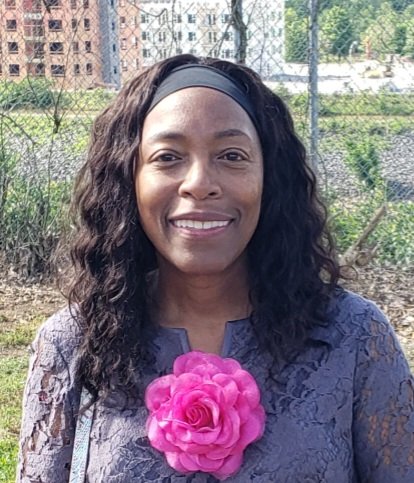The Harmful Nature of Stigma related to Accessing Mental Health Care

By Joyce Strong, MS, LMHC
Since 1949, the United States has observed Mental Health Awareness Month. During this interval of time, much attention is focused on defining the components of mental health, discussing mental health conditions, and identifying resources for effective mental health care. Another very important function of having Mental Health Awareness Month is to provide information, trainings, testimonies, and other relevant resources, which serve to educate the public about mental health and hopefully eliminate the stigma associated with having a mental health condition.
Stigma - What is it and how does it impact mental health care, especially in the Black community? The National Alliance on Mental Illness (NAMI) defines stigma as viewing a person negatively for no other reason than the fact or belief that they have a mental illness. Stigma can also be defined as a personal feeling of shame or negative judgment placed upon someone you know who has a mental illness. Due to stigma, those who suffer from mental health conditions often live in secrecy and isolation. Stigma makes it much harder for them to feel that they can reach out for help and support. This makes their journey to recovery longer and more difficult. According to NAMI, most individuals with mental health conditions can be successfully treated; however, less than half of those needing services reach out and ask for the help they need. Stigma can make individuals with mental health illnesses feel that they are all alone and suicide is the only answer to their problem. NAMI cites suicide as the second leading cause of death for youth ages 15-24 and the tenth leading cause of death for all Americans! As you can see, stigma is a huge problem as it relates to accessing mental health care. So, how does stigma impact the Black community?
Clinical Associate Professor Ruth White, in her article, “Why Mental Health Care is Stigmatized in Black Communities”, explores many of the complexities that make accessing mental health care a challenge in the Black community. She states that mental health issues are often compounded by the psychological stress of systematic racism, leading to a greater tendency for African Americans to experience and report psychological distress. She goes on to cite that only one in three African Americans with mental health issues will receive appropriate treatment. Why is this so? In her research, White found that many African Americans distrust the medical establishment due to historical data showing that African Americans have been exploited by both the U.S. government and the medical community. Along with this fact, seeking mental health care is often viewed as a weakness in the Black community. African Americans pride themselves on being a “strong” people. They also are very religious people. Information from the Pew Research Center shows that African Americans are amongst the most religious of any racial or ethnic group in the United States. As such, religious beliefs are often favored over formal mental health treatment.
Another important factor mentioned by White is the criminalization of African American behavior. She states this quote in her article: “If an African American person with a mental illness acts out in violence, they are much more likely to be criminalized than to be given the opportunity to receive mental health care.”
So the question becomes, how do we effectively destigmatize mental health care in the Black community? White suggests that we began by changing the way mental health illness is portrayed in film, TV shows, and the media as a whole. Conversations must be had and stories told about the positive experiences of receiving mental health treatment. Several African American celebrities have started speaking out about their personal experiences with receiving mental health care. As more of these stories are shared, bringing a greater awareness to the positive aspects of mental health care, it is hopeful that the cultural norm within the African American community will shift from one of stigmatization, to acceptance and destigmatization. Other issues addressed in White’s article are the need for meaningful policy changes that allow greater access to health care insurance and mental health services at affordable costs. High insurance rates and health care costs are major factors which limit access to treatment in low-income communities. As a final thought, White points to education as a tool for destigmatization. She states, “If we can raise awareness surrounding mental health from a young age, we can break stigmas and shape this generation to approach mental health in a new, positive way.” It is important that our young children are taught to view mental health care as an essential element of their overall well-being, and for parents to address it as readily as they do their children’s physical health.
I am hopeful that the information provided in this article will began to reshape your perception of accessing mental health care. As a licensed African American therapist, my goal is to inform you that treatment is available and can make a tremendous difference in your daily functioning. In closing, I want to introduce you to a powerful mental health resource which is available in the Fort Wayne community. Located here in the Fort Wayne community is a group of African American professionals who are skilled practitioners working in a number of community settings. Many of these professionals are also members of a group called the Society of Black Mental Health Professionals (SBMHP). This group of professionals stand ready to help you address your personal mental health challenges as well as provide educational talks and trainings related to mental health conditions and care. For additional information about SBMHP or for questions/comments related to this article, I can be reached at joyce.strong@crossconnectionscounseling.com. Thank you sincerely for your time.
References/Resources
“Ruth White, a professor in the USC Suzanne Dworak-Peck School of Social Work”
LINK: www.dworakpeck.usc.edu
www.nami.org
www.pewresearch.org
thesocietyofblackmentalhealthprofessionals@gmail.com
